Experts Warn Government Stimulus Could Be Artificially Inflating Values
 President Biden, center, Vice President Kamala Harris, left, and Treasury Secretary Janet Yellen met with business leaders at the White House this week. (Pete Marovich/The New York Times/Bloomberg via Getty Images)
President Biden, center, Vice President Kamala Harris, left, and Treasury Secretary Janet Yellen met with business leaders at the White House this week. (Pete Marovich/The New York Times/Bloomberg via Getty Images)
The Biden administration’s push for a $1.9 trillion pandemic relief package could provide a new boost for commercial property prices, which have shown surprising resiliency for much of the public health crisis.
Many players had projected a wave of distressed real estate to hit the market by now. But the swift injection of $2.2 trillion in federal stimulus early last year, combined with low interest rates and hopes that vaccines would bring infections under quick control, has allowed many owners to hold the line on prices.
The result has some capital markets lenders and advisers speculating that some values may now be unnaturally high, and the latest relief package could further extend out a reckoning day.
“There should be some concerns and warranted caution due to the unknown impacts from massive government intervention into the global economies and their potential to create asset bubbles and artificially inflated values,” Brian Ward, CEO of Trimont Real Estate Advisors, told CoStar News in an email.
“It’s possible that these interventions are having a greater impact than desired, which could lead to mispriced risk.”
Commercial property prices posted stronger gains in 2020 than 2019, according to the year-end CoStar Composite Price Indices, a comprehensive set of metrics closely watched by the industry. The equal-weighted index, which reflects the more numerous but lower-priced property sales typical of smaller, secondary markets, showed 8.8% growth versus 3.5% in 2019.
The value-weighted U.S. composite index, which reflects larger asset sales common in major markets, rose 9.1% versus 7.5%.
A sharp decline in transaction activity likely helped stabilize pricing, according to the indices. For 2020, transaction volume was down a marked 35% year over year.
“What little trading has occurred since COVID has generally been skewed toward higher-quality properties and perceived safety, with stronger price gains in the industrial sector and multifamily, while the hard-hit retail sector did show pricing declines in 2020,” Nancy Muscatello, managing consultant for CoStar Advisory Services and adviser on the indices, told CoStar News.
Another contributing factor is that real estate transactions have separated into two distinct categories, according to Mark Edelstein, a partner in New York law firm Morrison & Foerster. Edelstein is chair of the firm’s real estate group and co-chair of its distressed real estate group.
“You’ve got the bad asset classes, which are principally hospitality and retail,” Edelstein said in an interview. “And then you have other asset classes, which are not. So, what we’re seeing is a lot of transacting in the asset classes that are considered good or healthy; and a lot of investors and lenders are staying away from the unhealthy.”
In addition, buyers are reallocating where their money goes. Traditional retail and hospitality buyers are moving into such sectors as industrial, logistics and life sciences, he said.
While higher-value property trades and asset classes have played an important part in pricing, actions by Congress and the Federal Reserve cannot be ignored, Ward, Muscatello and Edelstein all agreed.
“Asset quality always plays an important role in valuations,” Ward said. “However, there are some very high-quality office, retail and hospitality assets that are significantly impaired right now because of this pandemic.”
Ward explained the current pricing environment this way: There’s a lot of capital available for transactions, an absence of investment alternatives with similar yields, and government intervention is prolonging decisions on distressed assets.
More intervention is on the way, too. Congress is hammering out details of the coronavirus relief package.
“With another $1.9 trillion [in stimulus], you assume that it’s going to soften the blow. It’s going to give you a lot of what we’ve seen so far,” Edelstein said.
That means investors with equity capital and lenders will continue putting their money into sectors that are healthy.
“That keeps the prices up,” Edelstein said. “We do talk from time to time about whether there is artificial inflation of the good asset classes. Only time will tell, but [there certainly seems] to be some inkling of that brewing.”
Corporate Strategy Corporation is a national commercial real estate strategy, development & execution firm representing mid-size and Fortune 1000 companies throughout the country. Delivering services in more than 60 US cities, Corporate Strategy Corporation, along with its affiliated partners bring more qualified experience per professional to each assignment than any other national commercial real estate company in North America. For more information visit www.corporatestrategy-corp.com.
